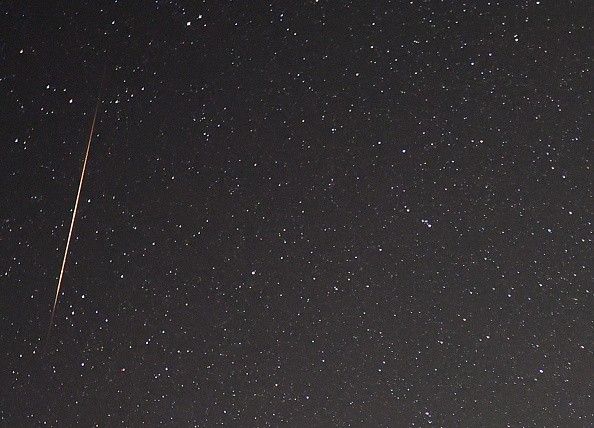Residents and communities in South Texas were startled after a loud boom emerged. Reports showed it was a meteorite strike.
Recently, portions of Texas suffered from a dangerous ice storm that unloaded difficult weather conditions for Texans.
The Associated Press (AP) report reported widespread power outages in Texas due to a severe ice storm in the first week of February.
Mystery solved: Falling meteorite strike
Meanwhile, the falling meteorite strike did not cause damage or casualties after a sudden loud sound happened.
According to CNN, communities and authorities investigated the reason behind the sound.
As they searched for the mystery, they found the culprit: a meteor strike.
Reports explained that the loud explosion emerged from the Lower Rio Grande Valley.
Authorities said they finally solved the issue.
Weather in parts of Texas

Meteors
by Ethan Miller/Getty Images

As February ends, there is still a chance of severe weather risks in parts of the United States, especially in the South and Texas.
Furthermore, the National Weather Service (NWS) reported that Lower Texas Coast could expect moderate risks of rip currents near the beaches.
However, the weather conditions in parts of Lower Texas would anticipate sunny skies for motorists and travelers.
Meanwhile, the National Weather Service - Chicago reported that a large storm system is expected in parts of the Greats lakes this week.
The challenging weather conditions would unload severe winter risks and strong winds.
NWS added that there could be a chance of flash flooding.
In parts of the Cascades, the weather report showed that heavy snow is expected starting Monday until Tuesday night.
The weather forecasts warned of possible snow conditions, resulting in travel difficulty and concerns.
Motorists are advised to drive slowly while on the road.
Meanwhile, parts of the western and northern Untied States are at risk of severe weather warnings.
Did you know? Facts about Meteorites
In terms of age, meteorites are millions to billions of years old. According to Arizona State University (ASU), meteorites' age can vary:
- Meteorites from asteroids can reach 4.5 billion-year-old
- Meteorites from Moon can range from 2.9 billion-year-old to 4.5 billion-year-old.
- Meteorites from Mars can range from 200 million-year-old to 4.5 billion-year-old.
Meteorites or meteors can hit anywhere on Earth. The impact can depend on the meteorites' size.
Furthermore, NASA's Solar System and Exploration explained meteoroids refer to objects coming from Space.
When they enter the Earth's atmosphere, meteorites can become fireballs.
Recently, Nature World News (NWN) reported that a fireball was located in the Southern United Kingdom and Northern France skies.
Reports showed that the said fireball could reach up to one diameter.
On the other hand, NASA explained that the Earth receives up to 44,000 kilograms of meteoritic materials from Space.
Yearly, the Earth experiences meteor showers that can unfold in a given time or hour.
Meteor showers are one of the most-awaited astronomical events for stargazers and astronomy lovers.
Meanwhile, asteroids refer to rocky remnants that orbit around the sun. Scientists have been studying asteroids to understand more about the planets and solar system.
Related Article : Halo, Snow Moon Unfold in the Sky in Final Days of Meteorological Winter
For more similar stories, don't forget to follow Nature News.
© 2025 NatureWorldNews.com All rights reserved. Do not reproduce without permission.





